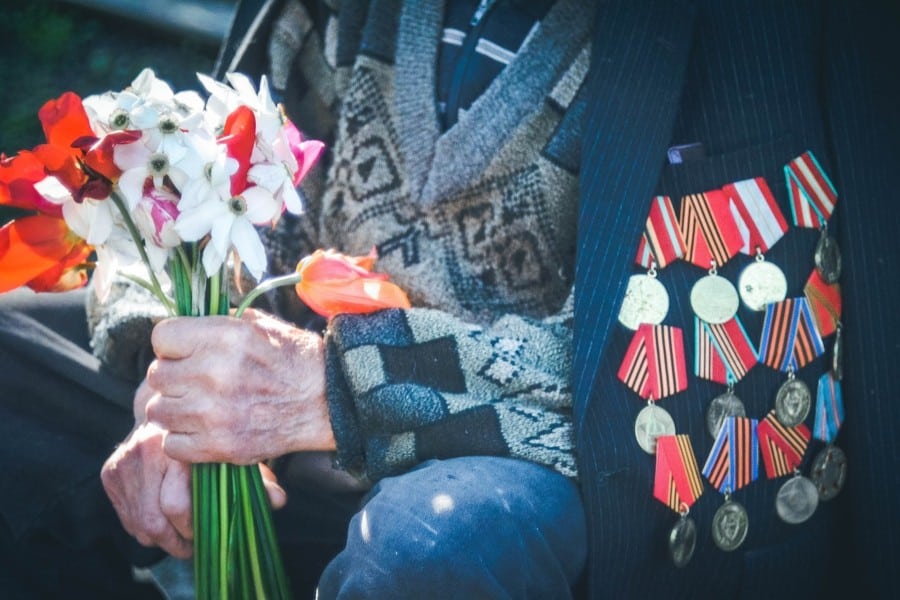Step back in time and immerse yourself in the fascinating history of the United States as we embark on a quest to answer a poignant question: When did the last Civil War veteran pass away? The American Civil War, a defining moment in the nation’s narrative, saw heroes and sacrifices that resonate even today.
In this captivating journey, we’ll delve deep into the annals of history to uncover the stories of those who lived through that tumultuous period. We’ll explore the lives and experiences of the last surviving veterans and the indelible mark they left on a changing world.
Join us as we pay tribute to the enduring legacy of these remarkable individuals and the echoes of a bygone era that still resonate in the pages of history.
When Did the Last Civil War Veteran Die?
The last verified Civil War veteran, Albert Woolson, who served as a Union Army drummer boy, died on August 2, 1956. Woolson, born on February 11, 1850, lived to the age of 106. His passing marked the end of an era, as he was the final surviving direct link to the American Civil War. Woolson’s death closed a significant chapter in American history, severing the last living connection to a war that profoundly shaped the nation.
The American Civil War: A Brief Overview
The American Civil War, fought from 1861 to 1865, was a defining moment in United States history. It erupted primarily over the contentious issues of states’ rights and slavery. The conflict pitted the Union (the Northern states), led by President Abraham Lincoln, against the Confederacy (the Southern states), which had seceded from the Union.
The war saw some of the most brutal battles in American history, including Gettysburg and Antietam, and introduced new military technologies and tactics. It resulted in a staggering loss of life, with an estimated 620,000 soldiers killed and many more wounded.
The war ultimately ended in a Union victory, leading to the abolition of slavery with the 13th Amendment and setting the stage for the Reconstruction era, which sought to rebuild and reintegrate the Southern states into the Union. The Civil War profoundly reshaped American society, politics, and national identity, leaving a legacy that continues to influence the country to this day.
The Last Survivors
1. Final Witnesses: The last survivors of the Civil War were the final witnesses to this historic conflict, embodying living history and personal experiences from a transformative period in American society.
2. Veterans’ Experiences: These individuals carried unique stories of battles, camaraderie, hardship, and the aftermath of the war, providing invaluable insights into the human aspect of the conflict.
3. Symbolic Figures: As the last of their kind, they symbolized the end of an era and served as a tangible connection to a pivotal chapter in American history.
4. Legacy Preservation: Their accounts and testimonies helped preserve the legacy of the Civil War, contributing to our understanding and interpretation of the event.
5. National Recognition: The last survivors received national attention and honor, highlighting the enduring importance of the Civil War in American collective memory.
6. Demographic Diversity: These survivors represented diverse backgrounds, including soldiers and non-combatants, from both the Union and Confederate sides, reflecting the complex human tapestry of the war.
7. Educational Impact: Their stories and experiences have been crucial in educating future generations about the Civil War, its causes, consequences, and the human cost of conflict.
Albert Woolson: The Last Union Veteran
Albert Woolson stands as a significant historical figure as the last verified Union veteran of the American Civil War. Born on February 11, 1850, in Antwerp, New York, Woolson’s life spanned a remarkable period of American history, bridging the gap between the Civil War era and the mid-20th century.
1. Enlistment and Service:
Woolson enlisted in the Union Army as a drummer boy, a role crucial for communication in battle. He served in Company C of the 1st Minnesota Heavy Artillery Regiment. His service, though not on the front lines, was integral to the military effort.
2. Post-War Life:
After the war, Woolson returned to civilian life, eventually settling in Duluth, Minnesota. He worked various jobs, including as a carpenter and a stationary engineer.
3. Veteran Advocacy:
Woolson became an active member of the Grand Army of the Republic (GAR), an organization for Union veterans. He was involved in veteran affairs and commemorations, advocating for the welfare of his fellow servicemen.
4. Living Link to History:
As one of the last living Union veterans, Woolson became a symbol of a fading era. His longevity made him a living connection to the Civil War, offering a direct link to the past for later generations.
5. National Recognition:
Woolson received national recognition in his later years. He was honored at various events and ceremonies, where he represented the legacy of the Union veterans.
6. Death and Legacy:
Albert Woolson passed away on August 2, 1956, in Duluth, at the age of 106. His death marked the end of an era, closing the chapter on the living history of the Civil War.
7. Historical Significance:
Woolson’s life and longevity have made him an important figure in Civil War history. His story provides a personal connection to the war, reminding us of the human element behind historical events.
8. Commemoration:
Woolson’s memory is commemorated through various means, including memorials and educational initiatives, ensuring that the legacy of Union veterans and the Civil War continues to be remembered and understood.
The Last Confederate Veteran: Controversy and Claims
The identity of the last surviving Confederate veteran has been a subject of debate and controversy. While several individuals claimed this title, the most notable were Walter Williams and John Salling.
Walter Williams, who professed to have been born in 1854 and served in a Texas cavalry unit, faced skepticism over the authenticity of his service record, with some researchers suggesting it might have been fabricated.
John Salling’s claim also encountered doubts regarding the legitimacy of his service in the Confederate Army. Despite these uncertainties, both men were celebrated in their lifetimes as symbols of the Confederate cause, embodying the enduring legacy and complex narratives of the Civil War’s Southern participants.
Remembering the Civil War Veterans
Remembering Civil War veterans transcends mere historical acknowledgment; it serves as a beacon for contemporary society. Here are additional key points to consider:
Reconciliation and Healing: Post-Civil War, the nation faced the monumental task of reconciliation. Remembering veterans highlights the importance of healing wounds and fostering unity, crucial lessons applicable in today’s divided world.
Diverse Perspectives: Civil War veterans came from diverse backgrounds, including African Americans who fought for their freedom. Recognizing their contributions promotes inclusivity and a comprehensive understanding of the war’s impact.
Educational Initiatives: Schools and institutions play a pivotal role in educating future generations about the Civil War. Curriculum enhancements, field trips to battlefields, and interactive learning experiences ensure that the legacy endures.
Preserving Artifacts: Museums and historical societies safeguard artifacts, letters, and documents from the era. These relics offer tangible connections to the past and enable us to grasp the daily lives of soldiers.
Community Engagement: Local communities often organize events, reenactments, and ceremonies to honor veterans. Such initiatives strengthen community bonds and instill a sense of civic pride.
Veteran Support: Recognizing contemporary veterans and ensuring they receive adequate support underscores the ongoing commitment to those who serve their country.
Remembering Civil War veterans underscores the enduring relevance of their sacrifices and serves as a touchstone for fostering unity, understanding diversity, and preserving the lessons of history for generations to come.
Conclusion: A Legacy That Endures
In our quest to uncover the historical significance of “When Did the Last Civil War Veteran Die,” we have delved into a chapter of American history that continues to resonate. The passing of the last Civil War veteran may seem distant, but its impact reverberates through time, reminding us of the enduring legacy of that conflict. It serves as a poignant reminder of the sacrifices made and the healing that followed.
As we reflect on this milestone, we are reminded of the importance of preserving history and honoring those who lived through tumultuous times. Their stories, though fading with time, remain vital in shaping our understanding of the past. So, while the last veteran is no longer with us, their memory lives on, inspiring us to learn from history and work towards a more unified future.











Leave a Reply